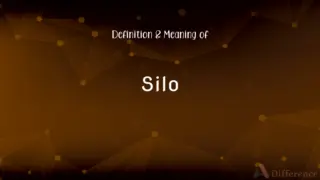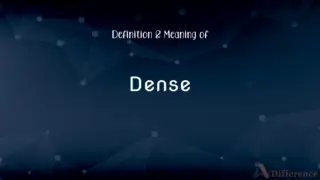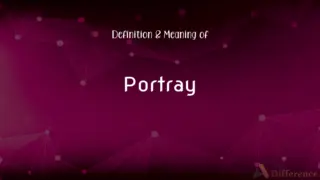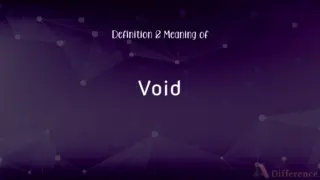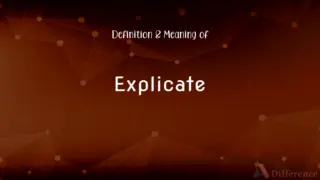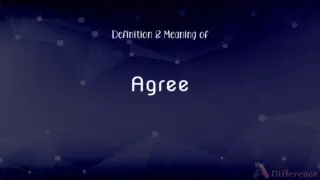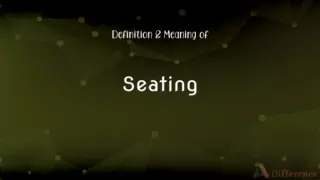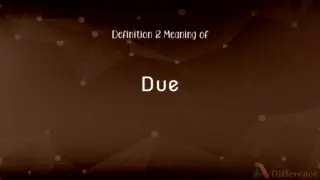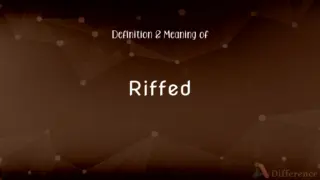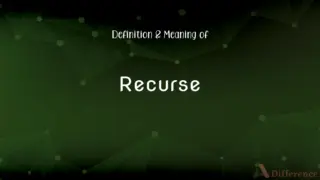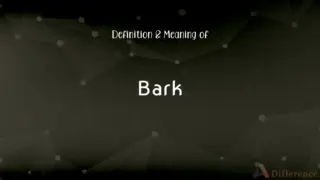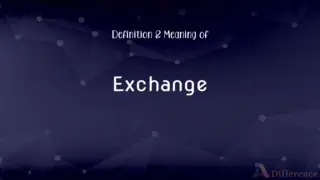Sparse Definition and Meaning
Edited by Tayyaba Rehman — By Maham Liaqat — Published on April 13, 2024
Sparse means thinly dispersed or scattered; not densely packed. e.g., The sparse population of the desert made it a peaceful place.

Table of Contents
Sparse Definitions
Having few parts or members; not dense.
The sparse crowd at the concert was disappointing.
Scattered thinly across an area; not crowded.
The sparse vegetation in the desert struggles to survive.
Minimalist in detail or embellishment.
The room’s sparse decoration appealed to her minimalist taste.
Barely sufficient or adequate.
The sparse evidence made the case difficult to prove.
Infrequent; occurring at wide intervals.
His visits became sparse after he moved abroad.
Thinly populated or having few items.
The sparse shelves in the store indicated a supply issue.
Meager; limited in quantity or number.
Resources were sparse in the war-torn region.
Spread out or distributed over a large area.
Wildlife in the national park is sparse but diverse.
Not thickly or densely grown or settled.
She noticed her hair was becoming sparse.
Occurring, growing, or settled at widely spaced intervals; not thick or dense.
Having widely spaced intervals.
A sparse array, index, or matrix
Not dense; meager; scanty
(maths) Having few nonzero elements
(obsolete) To disperse, to scatter.
Thinly scattered; set or planted here and there; not being dense or close together; as, a sparse population.
Placed irregularly and distantly; scattered; - applied to branches, leaves, peduncles, and the like.
To scatter; to disperse.
Not dense;
A thin beard
Trees were sparse
Lacking in density or frequency.
The sparse rainfall this year led to a drought.
Sparse Snonyms
Limited
Restricted in size, amount, or extent
They faced limited options due to the budget cuts.
Scant
Barely sufficient in amount or quantity
The scant resources made survival a challenge.
Thin
Having little, or too little, flesh or fat; not dense
The thin crowd made the large hall seem empty.
Scattered
Distributed or occurring at irregular intervals
The scattered trees provided little shade.
Meager
Lacking in quantity or quality
The meager meal was hardly enough for everyone.
Minimal
Of a minimum amount, quantity, or degree
The artist's minimal style captured the essence with few strokes.
Skimpy
Providing or consisting of less than is needed
The skimpy details in the report were unsatisfactory.
Infrequent
Not occurring often; rare
Infrequent bus services made travel inconvenient.
Bare
Lacking clothing or covering
The bare walls made the room feel cold and uninviting.
Sparse
Thinly dispersed or scattered
The sparse vegetation was a sign of the arid climate.
Sparse Idioms & Phrases
A sparse spread
A meal or buffet that is minimally provided or looks empty.
The guests were disappointed by the sparse spread at the banquet.
Make sparse
To reduce in density or quantity.
The gardener made the bushes sparse to let more light through.
Sparse as hen's teeth
Extremely rare or scarce.
Affordable housing in the city is as sparse as hen's teeth.
Sparse population
A population that is thinly dispersed across an area.
The vast desert is known for its sparse population.
Sparse coverage
Minimal reporting or attention given by media.
The event received sparse coverage, much to the organizer's dismay.
Grow sparse
To become less dense or frequent over time.
His visits grew sparse as his new job took up more time.
Spread sparse
To distribute thinly across an area.
The town's population is spread sparse across the valley.
Sparse attendance
Low turnout or participation in an event.
The meeting was important despite the sparse attendance.
Leave sparse
To clear or thin out an area.
The fire left the forest sparse and bare.
Sparse words
Few and carefully chosen words.
He was known for his sparse words, each carrying deep meaning.
Sparse Example Sentences
The sparse population of the island made it an ideal retreat.
Due to sparse rainfall, the farmers faced a tough year.
She preferred the sparse design of the room.
Information on the topic was sparse and hard to find.
The trees in the forest were surprisingly sparse.
The audience was sparse, but the performance was still captivating.
The sparse distribution of stars made the night sky particularly dark.
His beard was too sparse to grow a full mustache.
Resources in the area were too sparse to support a large community.
The sparse lighting in the hallway created a somber mood.
Wildlife sightings were sparse during the dry season.
Her sparse comments left room for interpretation.
The garden looked sparse after the winter, awaiting spring's renewal.
The book's illustrations were sparse, focusing attention on the text.
Jobs in the field were sparse, leading many to seek opportunities elsewhere.
Common Curiosities
How do we divide sparse into syllables?
Sparse is a single-syllable word, so it is not divided.
How is sparse used in a sentence?
e.g., Due to the sparse vegetation, the landscape appeared barren and desolate.
How many syllables are in sparse?
There are one syllable in "sparse."
What is a stressed syllable in sparse?
The entire word "sparse" is stressed, as it consists of only one syllable.
Why is it called sparse?
It is called "sparse" because it comes from the Latin "sparsus," meaning scattered, indicating things that are thinly distributed or not densely packed.
What is another term for sparse?
Another term for "sparse" is "scant."
What part of speech is sparse?
"Sparse" is an adjective.
What is the singular form of sparse?
"Sparse" does not have singular or plural forms; it modifies nouns regardless of their number.
What is the pronunciation of sparse?
Sparse is pronounced as /spɑːrs/.
What is the plural form of sparse?
As an adjective, "sparse" does not change form for plural nouns.
Is sparse an adverb?
No, "sparse" is not an adverb; it's an adjective.
What is the verb form of sparse?
"Sparse" does not have a direct verb form; however, "thin out" or "deplete" can be used to convey a similar action.
Is the sparse term a metaphor?
"Sparse" can be used metaphorically to describe something that is minimal or lacking, but it is not inherently a metaphor.
Is sparse an abstract noun?
"Sparse" is not a noun; it is an adjective, so it cannot be an abstract noun.
Is sparse a collective noun?
"Sparse" is not a noun; it's an adjective, so it's not a collective noun.
Is the word sparse Gerund?
"Sparse" is not a gerund; it's an adjective. Gerunds are nouns derived from verbs, ending in -ing.
Is sparse a countable noun?
"Sparse" is not a noun; it is an adjective, so it's not countable.
Which determiner is used with sparse?
Determiners used with "sparse" depend on the noun it modifies, such as "the sparse vegetation" or "a sparse population."
Which preposition is used with sparse?
Prepositions used with "sparse" vary with context, such as "sparse in," "sparse across," or "sparse throughout."
Which article is used with sparse?
The definite article "the" or the indefinite article "a/an" can be used with "sparse," depending on the context.
What is the opposite of sparse?
The opposite of "sparse" is "dense" or "abundant."
Is sparse a vowel or consonant?
The word "sparse" starts with a consonant.
Which vowel is used before sparse?
The vowel used before "sparse" is not specific to the word; it depends on the article or adjective preceding it in a sentence.
Is sparse a noun or adjective?
"Sparse" is an adjective.
Is sparse a negative or positive word?
"Sparse" is neutral; its positive or negative connotation depends on the context in which it is used.
Is the word sparse imperative?
"Sparse" is not imperative; it's an adjective used to describe the quality of something.
Is the word “sparse” a Direct object or an Indirect object?
"Sparse" cannot be a direct or indirect object because it is an adjective, not a noun.
Which conjunction is used with sparse?
Conjunctions are not specifically used with "sparse"; their use depends on the overall structure of the sentence.
Share Your Discovery

Previous Term
Dismal Definition and Meaning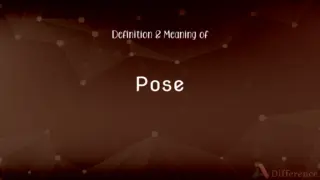
Next Term
Pose Definition and MeaningAuthor Spotlight
Written by
Maham LiaqatEdited by
Tayyaba RehmanTayyaba Rehman is a distinguished writer, currently serving as a primary contributor to askdifference.com. As a researcher in semantics and etymology, Tayyaba's passion for the complexity of languages and their distinctions has found a perfect home on the platform. Tayyaba delves into the intricacies of language, distinguishing between commonly confused words and phrases, thereby providing clarity for readers worldwide.









